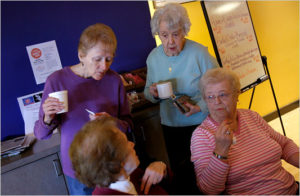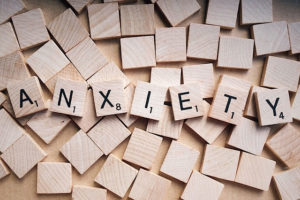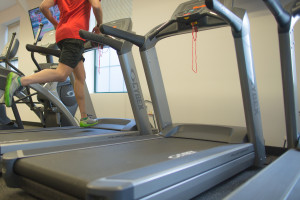
Whether planning for education, career or retirement, it’s always good to have a plan B. We are not in control of many things in our life and, sometimes, things do not go as we had planned. So it is always good to have a plan B (or even plan C!). Contrary to what some people may think, shifting to plan B is not failure. It is being proactive, innovative and flexible. It is also an effective antidote to anxiety and depression. And who knows, doing plan B first might just lead you to plan A!
 Is your son or daughter exhibiting the following behaviors?
Is your son or daughter exhibiting the following behaviors?
- • Difficulty planning and prioritizing tasks/activities and managing time.
- • Difficulty keeping things organized and is always losing things
- • Difficulty starting any task (e.g. homework) on his/her own and finishing assignments/projects by the deadline
- • Easily forgeting lessons, multi-step instructions
- • Makes careless mistakes and does not notice them
- • Is talkative and/or impulsive
- • Difficulty controlling emotions
If so, your child may have an EXECUTIVE SKILLS DYSFUNCTION.
EXECUTIVE SKILLS are skills a person needs to be able to get things done. In children we call these study skills, in adults we call these work skills.
Examples in children are:
- * accomplishing assignments and submitting these on time;
- * losing ballpens, erasers and water jugs in school;
- * adding numbers when the equation called for subtraction.
Children showing difficulties or dysfunction in executive skills need help.
Neuropsychological/psychoeducational assessments will help identify these problems and point the way toward intervention.
Work with a teacher or an occupational therapist familiar with these problems is often the next step.
For the sake of your relationship with your child, seek professional help. The sooner the better.
 I attended a symposium on neurocognitive functioning in Singapore last month. Some take home messages that are important and relevant to us as we go into our senior years healthfully and gracefully!!
I attended a symposium on neurocognitive functioning in Singapore last month. Some take home messages that are important and relevant to us as we go into our senior years healthfully and gracefully!!
A lot of the lectures were focused on the importance of maintaining good vascular health to delay the onset of dementia. Research is moving intervention targets to pre-stroke identification and lifestyle management.
Factors that prevent/delay post stroke cognitive impairment (which we can apply for other conditions as well):
- High educational level or life-long learning. Keep yourself open to learning new things – learn a new language, take art/painting classes – just keep learning!
- Keep being productive – delay retirement. You can lessen your work load and pace but keep working and being productive.
- Manage your stress level – remove unnecessary stress in your life!
- Increase your leisure time – be it physical, social or intellectual activity.
- Stay socially engaged, do things with others such as having lunches with friends, outings with family, chatting with exercise mates!
- Control the metabolic risk factors for dementia such as obesity, diabetes, high blood pressure, high cholesterol level.
- Control cardio-metabolic factors such as diabetes.
- Maintain your physical health e.g. maintaining a healthy weight level and avoiding inactivity.
- Maintain good nutrition. Follow a good diet that is high in folate (good for memory, learning & language), Omega 3, drink tea and eat curry!
- Control environmental factors. High density of people with high volume of amenities (e.g. restaurants, movie/play houses, museums, etc) is generally better for your brain.



 I have been asked how one can handle anxiety. These are ways you can help yourself:
I have been asked how one can handle anxiety. These are ways you can help yourself:
1. First, know yourself and what triggers your attacks. When you are about to experience or are going through an anxiety attack, observe your thoughts and write them down. This will help you identify the triggers of your anxiety attacks.
2. Once you know the events and circumstances that trigger your attacks you can sort them into what is solvable and what is not.
3. For triggers that are “solvable”, take concrete/tangible steps to address the problem (e.g. taking a test, talking in front of an audience, attending a convention and having to “network” with strangers).
If you need the help of a professional, consult a psychotherapist or a counselor or talk to a friend.
4. For triggers that are not “solvable”, make peace with them and accept them (e.g. being diagnosed with a medical condition, conflicts with parents or siblings, a death of or separation from a loved one).
A therapist can also help you develop strategies to manage these stresses.
5. Exercise regularly. Aerobic dancing /kickboxing /yoga /jogging are great ways to not only live healthily but also to get the anxiety and stress out of your system.
6. Make sure to get enough sleep. Some helpful techniques to prepare you for bedtime: avoid watching TV at night, tone down the lights in your room, drink warm milk, read a book.
7. When you get up in the morning, smile at yourself in the mirror and say “Hi beautiful/handsome, let’s have a great day!”
We all strive to live a happy and full life. We can help ourselves attain this happy state by making the following activities a part of daily living:
 Proper nutrition – include lots of fruits and vegetables in your daily meals. Eat just enough to keep you well nourished and hydrated.
Proper nutrition – include lots of fruits and vegetables in your daily meals. Eat just enough to keep you well nourished and hydrated.
- Exercise – may be a gym workout(includes strength training and cardiovascular exercise), a sport (badminton, cycling, etc), aerobic activities (zumba, dancing) or the mind-body discipline of yoga. Exercise will get your body moving to circulate newly-oxygenated blood in your brain – nourishing and stimulating it; make you perspire and remove toxins; stretch your muscles to keep it long, limber and toned. Also, exercise will cheer you up and improve your mood and outlook!

- Social interaction through regular social activities – keep in touch with family and friends by getting together with them on a regular basis. Be it drinks with colleagues on friday nights, sunday dinners with family, or regular exercise sessions with gym-mates.
- Intellectual stimulation (through recreational mind stimulating games/activities) – keep your mind exercised by solving that crossword puzzle (or sudoku),
- Vocational activities– may be in the form of a job or employment, devotion or advocacies to a cause thats close to your heart
